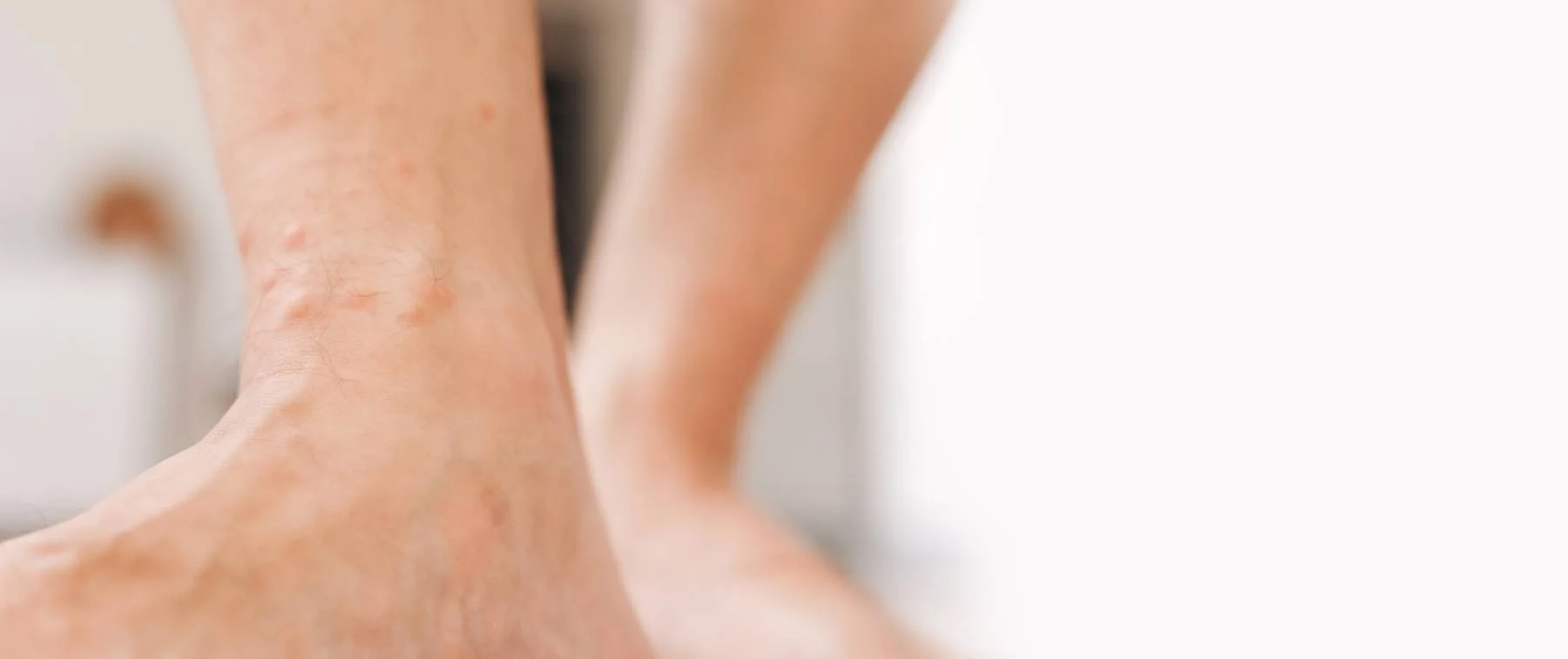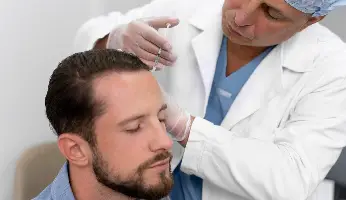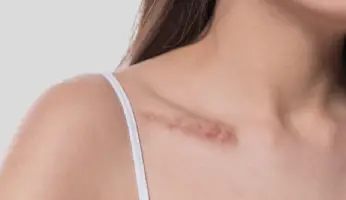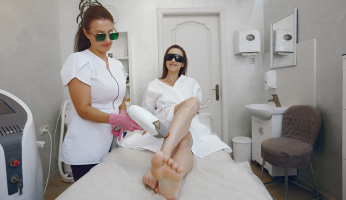
Eczema Specialist in Bangalore
Eczema is a general name for a group of skin conditions known together as dermatitis. It can cause skin redness and scaling, vesicles, dryness, weeping, and irritation.
This skin inflammatory condition can appear anywhere on the body, including the foot. It affects both children and adults, and it is not contagious. This skin condition has no recognized cause, but it frequently affects individuals who have a family history of allergies.
In this blog, Dr. Rajdeep Mysore, a renowned Eczema Specialist in Bangalore, has comprehensively covered the topic of foot eczema. Please continue reading for a detailed exploration of this condition.
What causes Foot Eczema?
Eczema on the feet can develop as a result of an allergic reaction or as a reaction to environmental factors such as moisture or friction. Foot eczema may manifest itself in a variety of ways, including atopic and contact dermatitis, as well as dyshidrotic and nummular eczema. Each condition has its own set of triggers and may necessitate a somewhat different treatment strategy.
Types of Foot Eczema
- Atopic Dermatitis: This is the most common type of foot eczema. Symptoms include dry, scaly skin that splits from time to time. This eczema on the feet itches and can be associated with redness or rashes, most commonly around the toes, the bottom of the foot, or the heel. During a flare, the skin may be itchy and sensitive, and if one scratches too much, it may get infected.
- Contact Dermatitis: Foot eczema caused by contact dermatitis could be an immunological reaction or a reaction to an allergen. Symptoms may include red, itchy skin and pus-filled blisters.
- Dyshidrotic Eczema: Small but deep blisters on the sides and soles of the feet are signs of dyshidrotic eczema. The skin becomes uncomfortable or even burns around the toes. The blisters are prone to infection, especially if scratched. This type of foot eczema appears to be the result of an allergic reaction or a fungal infection, and it typically affects adult feet.
- Nummular Eczema: Crusty or leaking circular spots on the feet are signs of nummular eczema. While the spots may or may not be itchy, they can cause skin colour changes and irritation. This type of foot eczema appears to develop as a result of an injury or trauma, which could be as simple as an insect bite or as severe as systemic inflammation.
If anyone is experiencing these types of foot issues and is seeking Treatment for Foot Eczema in Bangalore, they can reach out to Dr. Rajdeep Mysore at Charma Clinics. He is an expert in eczema treatment and provides patients with the best treatment plans to effectively manage the condition.
Also Read: Skin Doctor Talks About Eczema
Foot Eczema Risk Factors
Foot eczema can be triggered and worsened by:
- Irritants: Soaps and detergents like washing powder or liquid, shampoo, body wash, and bubble bath
- Stress: Eczema flare-ups are frequently caused by stress.
- Weather: Itching can be exacerbated by cold, dry, moist, or extremely hot conditions.
- Hormones: Women's eczema frequently worsens during pregnancy or immediately before their monthly period.
- Food allergies: Cow's milk, peanuts, wheat, and eggs are common allergens associated with atopic dermatitis.
- Other allergens: Other allergens include dust mites, seasonal pollen, and pet dander (tiny scales shed from animal skin or hair).
- Clothing materials: Clothing materials, particularly synthetic fibres, wool, and rough materials, can irritate the skin and cause an allergic reaction.
- Sweating: Prolonged wetness of the feet as a result of sweating can cause foot eczema. This is more common if one wears tight shoes, and wool socks, or sleeps with socks on.
- Friction: Rubbing against the skin from tight shoes or socks can irritate the skin, especially if the foot already has moderate eczema; the skin around the foot becomes very sensitive.
Treatment By A Dermatologist in Bangalore For Foot Eczema
- Antihistamines: Antihistamines help relieve eczema irritation by limiting the effect of histamines in the blood. Histamine-blocking drugs taken orally help to lessen eczema symptoms caused by triggers such as environmental allergens.
- Creams and ointments containing steroids: Inflammation can be reduced by corticosteroid lotions and ointments. Over-the-counter medications such as 1% hydroco-rtisone may be sufficient, but the doctor may prescribe higher corticosteroids in more severe situations. Corticosteroids work best when applied about 30 minutes after moisturising.
- Wet wraps and bandages: Wearing medicinal bandages, socks, or placing wet wraps over damaged areas of skin may help keep the area from drying out, cover the skin, allow it to heal, and avoid itching. First, emollients and/or corticosteroids should be used. This is especially useful if foot eczema affects people at night because it allows the cream or ointment to be absorbed and prevents them from scratching.
- Light therapy: Light therapy, also known as phototherapy, helps alleviate itch and inflammation by decreasing histamine production in the skin. UV light of various wavelengths can be used to treat the hands and feet, as well as other body parts. Phototherapy comes in two varieties: narrowband ultraviolet B (NB-UVB) light and ultraviolet A (UVA) light.
- Non-steroidal immunosuppressive medications: Long-term use of oral steroids may be harmful, so the doctor may recommend methot-rexate tablets, mychophe-nolate tablets, or dupi-lumab injections.
Benefits of getting Foot Eczema treatment in Bangalore at Charma Clinic
- When itching and scratching are interfering with everyday activities, this can be a great way to break the pattern.
- This is especially effective if itching and pain are interfering with sleep, which is a common symptom of eczema.
- The treatment aims to relieve irritation and inflammation while also helping the skin retain moisture.
How to Prevent Foot Eczema Flare-Ups
- Stress management: Stress management involves acquiring the ability to recognize and manage stressful situations. CBT (cognitive behavioural therapy) and relaxation techniques can be extremely beneficial.
- Identify allergens: Look for products that cause eczema. For example, change the washing powder or soap and keep a food journal.
- Keep your feet dry: Sweating aggravates foot eczema; therefore, allow the feet to breathe regularly. When possible, walk barefoot, and when people must wear shoes, wear 100% cotton socks. Change the shoes every day to ensure that they have completely dried.
Frequently Asked Questions on Foot Eczema
Is foot eczema treatable?
Although there is no cure for this medical condition, medications have made it much more bearable. The most effective treatment is to avoid scratching. Cold compresses can be used to relieve itching. Lotions and creams are frequently used to keep the skin as moisturized as possible. Cortico-steroid creams can also be used to help with inflammation reduction. The first step toward effective eczema therapy is a precise diagnosis.
How can one manage foot eczema at home?
Wash your hands and feet daily. Use lukewarm water and a gentle, fragrance-free soap. After that, pat your skin gently dry. Apply a thick moisturiser to the feet after every shower or wash. To seal it in water, rub it on while the skin is still moist. To preserve the skin, one may also use a lotion containing dimethicone. If allergies cause your eczema, try to avoid things that cause them. Avoid scratching the blisters. It will aggravate them.
How can you treat foot eczema?
The treatment for every type of foot eczema is essentially the same, to reduce irritation and inflammation during a flare-up while maintaining skin hydration in between. Early treatment is critical to preventing symptoms from worsening, so don't overlook the warning signs of dry, itchy skin. Treatment is necessary both during and between flare-ups of foot eczema to treat and prevent the condition.
The best dermatologist in Bangalore like Dr. Rajdeep Mysore can propose the best treatment for patients after an examination and diagnosis. Get in touch for more details.




